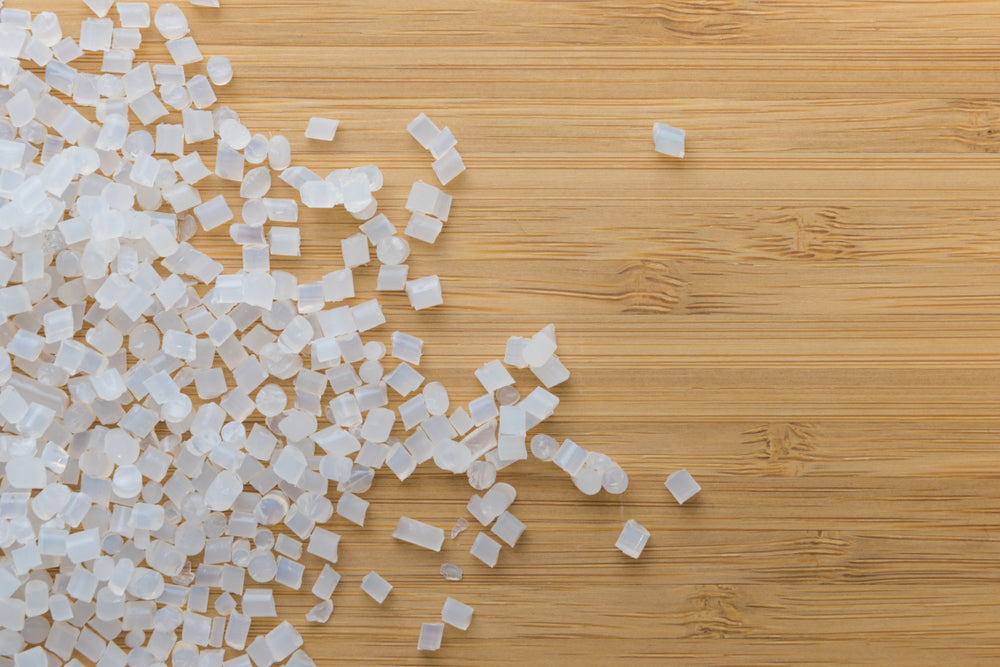Bioplastics: Eco-Friendly Sustainable Packaging Solutions
A recent poll revealed eight out of 10 American consumers are concerned about the amoun...

A recent poll revealed eight out of 10 American consumers are concerned about the amount of plastic packaging waste produced every year. The poll also showed consumers are seeking a sustainable packaging alternative to petroleum-based plastic. What is the sustainable packaging solution these consumers are seeking for eco friendly packaging?
Many cannabis packaging companies recognize plant-based plastics as a sustainable alternative to petroleum-based plastics. Most bioplastics on the market are partially produced with the sugars from corn and sugarcane. Does this plant-based plastic packaging have the potential to replace petroleum-based plastic?
What are the Upstream Environmental Impacts of Bioplastics?
Greenhouse Gas Emissions
Plastic manufacturing and transportation in the United States produce 10 million tons of carbon dioxide every year. There is a need to secure a sustainable alternative to plastic that does not generate astronomical greenhouse gas emissions and considers the overall environmental impact.
Do Bioplastics Produce Fewer Emissions Than Petroleum-Based Plastics?
Recent academic research reported a 25% decrease in greenhouse gas emissions if all plastics were plant-based. Bioplastics would significantly reduce greenhouse gas emissions; however, they may not be a long-term sustainable packaging alternative. This research also discovered that petroleum-based plastic would generate fewer greenhouse gas emissions than plant-based plastic if produced with renewable energy.
Bioplastic production currently reduces greenhouse gas emissions. Even so, as we will soon learn, bioplastic production has unique impacts on the environment, including the use of alternative materials to plastic. We must consider what the environmental effects of plant-based plastic are.
Use of Fertilizers and Pesticides
Bioplastic production requires massive amounts of plant materials. Growing biomass for bioplastic ingredients increases the number of fertilizers and pesticides pumped into the environment. This negative externality of bioplastic production is not a byproduct of petroleum-based plastic production.
Compared to petroleum-based plastic, bioplastics release more harmful chemicals into the environment. Additionally, plant-based plastics provide a more considerable contribution to the depletion of the earth's ozone layer than petroleum-based plastics. Bioplastics may emit fewer greenhouse gases, but they also produce more chemicals than petroleum-based plastics.
The use of fertilizers and pesticides should be assessed when evaluating the sustainability of packaging and sustainability for cannabis.
Do Bioplastics Have the Capability to be Recycled or Composted?
It is no secret: Most plant-based and petroleum-based plastics are not recycled, reused, or composted. Consumers need access to plastic that is recyclable, reusable, or compostable. Do bioplastics meet any of these needs for sustainable materials?
Here is the truth: Bioplastics are challenging to recycle, reuse, and compost. Consumers cannot recycle plant-based and petroleum-based plastics in the same streams because bioplastics damage the recycling infrastructure. Consequently, consumers do not have access to a recycling infrastructure for plant-based plastic. As it stands, there is more potential to recycle petroleum-based plastic than bioplastics.
Additionally, plant-based plastics are difficult to compost: Jurisdictions providing access to composting infrastructure use a heavily carbon-intensive process to compost bioplastics. Most plant-based plastics enter a landfill and generate methane as they degrade. Bioplastics also have the same detrimental effects on the soil surrounding the degrading plastic as petroleum-based plastic.
When Will Bioplastics Become a Sustainable Cannabis Packaging Alternative?
As it stands, bioplastics are not a sustainable alternative to petroleum-based plastics. Bioplastics can be a sustainable alternative when consumers can access proper recycling and composting infrastructure. Until then, reused and recycled packaging is the most sustainable packaging option on the market, offering eco friendly packaging solutions.
Cannabis brands and retailers can choose ocean-bound plastic to package their products. Ocean-bound plastic is plastic reclaimed from waterways and recycled into cannabis packaging. This recycled plastic is one of the most sustainable packaging options available to cannabis companies.
Contact us if you're ready to build a long-term relationship with a cannabis packaging supplier you can trust. Sana Packaging is here to help you find sustainable cannabis packaging for your products. It all starts with a conversation!
